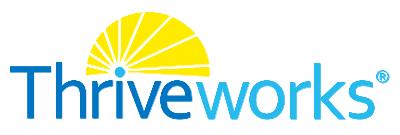About Job
Hours: part-time, up to 20 hours per week
Location: Lynchburg VA, 24501
Compensation dependent on experience
Position Summary
The Social Worker – QIDP (Qualified Intellectual Disability Professional) acts as an intermediary between the housing entity, the individual receiving services, their guardian/Authorized Representative and their support services. The social worker may simply provide information to the individual or family support members regarding these services or it may be necessary to intercede on behalf of the individual. The role that a social worker depends upon the needs and requests of the individual or family. The social worker will facilitate positive relationships, communicate and work to resolve any issues that arise
Required Education and Experience
- Bachelor’s degree of Social Work from an accredited college/university.
- A minimum of one year of documented experience working directly with individuals who have an intellectual disability or other developmental disability, or equivalent combination of education, training and experience that qualifies candidate as a QIDP
- Qualified Intellectual Disability Professional (QIDP)
Related Knowledge, Skills and Abilities
Specialized knowledge of best practices in serving individuals with intellectual and/or developmental disabilities (ID/DD). Specialized knowledge of state licensure and federal certification requirements. Knowledge of simple nursing care, first-aid, behavior management, personal and hygiene. Ability to ambulate, bend and lift at least 25 pounds on a regular basis. Ability to safely assist individuals with all aspects of physical management including equipment use, safe lifting and physical assistance. Ability to work before and after normal work hours, including on weekends and holidays. Commitment to the public health mission of protecting the health, safety, rights, privacy, and well-being of clients in ICF/ID facilities. Must meet the requirements to be designated a Qualified Intellectual Disabilities Professional as defined in 42 CFR 483.430.
Must maintain a valid driver’s license to safely drive an automobile within Agency guidelines. Ability to participate in and successfully pass behavioral intervention training; includes both verbal de-escalation skills and physical skills techniques to be utilized with consumers as needed. Ability to drive and must possess a valid driver’s license. May be called upon to travel to any Horizon worksite; transport clients, provide services to client @other locations. Regular attendance at trainings and Horizon meetings may require travel to a variety of Horizon sites. Willing and available to work modified schedules (weekends, holidays, etc.) as required.
HORIZON ENVIRONMENT
Horizon Behavioral Health Community Services Board (CSB) is located in the beautiful heart of Central Virginia. Whether your passions be hiking the Appalachian Trails, kayaking the James River Blueways, or a Sunday drive along the world-famous Blue Ridge Parkway, Lynchburg Virginia offers small-town southern charm with an active culture of music festivals, outdoor activities, world-class performing arts and a revitalized downtown that placed it at the top of the list by Reviews.org as the 2019 best place for millennials to move. Horizon is also the proud recipient of Living in Lynchburg’s 2021 Giving Back Award, Best of Lynchburg for Counseling Services for multiple consecutive years, and named Best Place to Work by Lynchburg Business Magazine in 2023, and again in 2024!
To Apply – Please visit our online career center at
Horizon Behavioral Health is an Equal Opportunity Employer (EOE).
Professional Field
 Counseling
Counseling Nursing
Nursing Social Work
Social Work Other Behavioral, Mental, or Healthcare Field
Other Behavioral, Mental, or Healthcare Field









